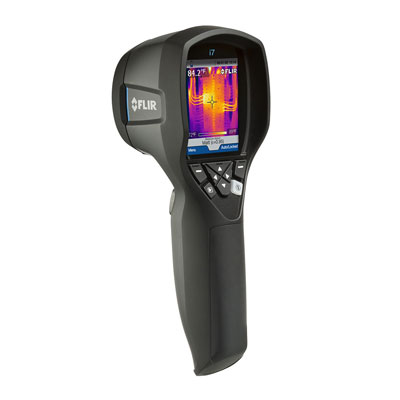Which one? (Part II) – FLIR i Series for Building Diagnostics Applications
 Previously on Brady’s blog… we discussed FLIR’s new “How to Choose” video series and looked at the i-series as it pertains to mechanical and electrical applications. This post is also on the i-series but takes a look at its features with an eye towards building and home inspection applications.
Previously on Brady’s blog… we discussed FLIR’s new “How to Choose” video series and looked at the i-series as it pertains to mechanical and electrical applications. This post is also on the i-series but takes a look at its features with an eye towards building and home inspection applications.
FLIR’s video cites home inspectors, energy efficiency specialists and restoration contractors as the prime demographic for these cameras; people who need to do only occasional thermal scanning - as the i-series provides the most accurate and instant non-contact temperature readings and can help spot hidden potential problems without having to tear open a wall or flooring. Users will be able to locate air leaks, missing insulation, moisture intrusions and other building defects by detecting small changes in temperature.
All the cameras boast an intuitive interface that allows you to set emissivity, palettes, and other parameters, and include FLIR Tools software for professional report creation. But the i7 is really where it’s at for building inspections. The resolution of the i7 is the only in the series to exceed RESNET resolution standards, which is an important credential in assessing and documenting energy efficiency. The i7 also has area box measurements, automatic hot/cold markers and isotherms to alert you to the crossing of specific temperature thresholds. So while all the cameras are good for personal and professional use, and the i5 offers upgraded resolution from the i3 - the i7 is the way to go for the serious professional looking to adhere to a budget.






Add new comment